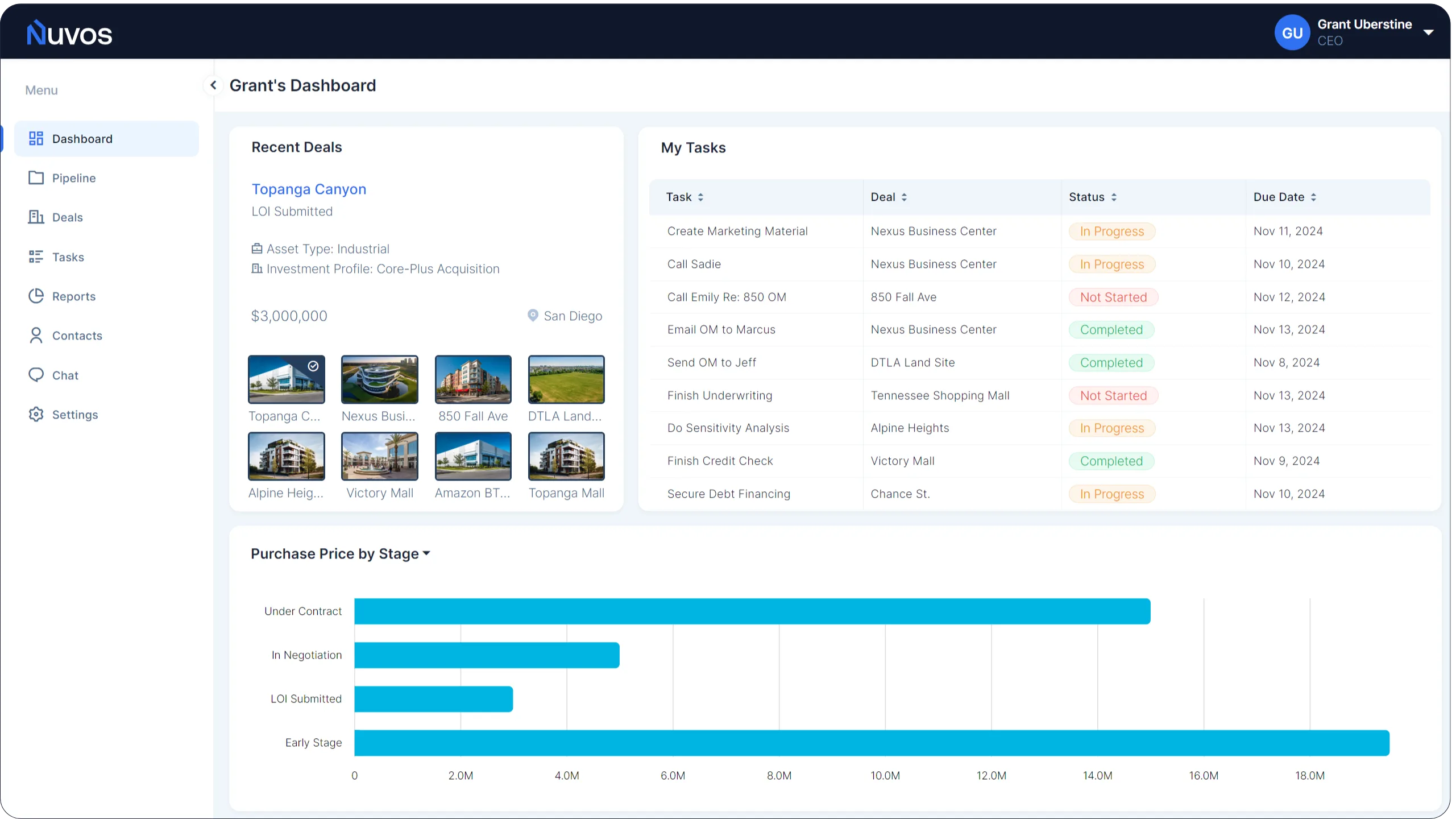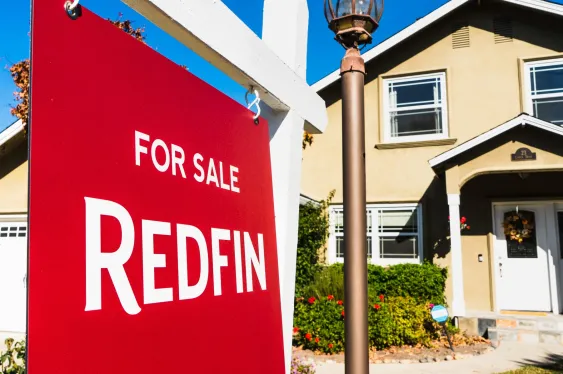Landlords Turn to Cash-Back Rewards as Multifamily Market Faces Oversupply
In response to an oversupply of apartments, multifamily landlords are turning to rewards and cash-back programs to attract and retain tenants.
Good morning. In response to an oversupply of apartments, multifamily landlords are turning to rewards and cash-back programs to attract and retain tenants.
Today’s issue is brought to you by AirGarage—maximize parking revenue at your property.
You currently have 0 referrals, only 1 away from receiving B.O.T.N Multifamily Deal Screener .
Market Snapshot
|
|
||||
|
|
*Data as of 8/26/2024 market close.
RENT REVOLUTION
Landlords Sweeten Deals With Renter Rewards
Landlords are increasingly replacing traditional rent concessions with rewards programs, aiming to retain tenants while cutting costs.
Rent rewards: According to the WSJ, more landlords are offering credit-card-style rewards through companies like Stake, Incentco, and Piñata to retain tenants. These incentives—1% to 2% cash back or points for home goods and gift cards—are gaining traction as over 12 million renters spend more than half their income on housing. With over two million renters now enrolled, landlords say these programs boost lease renewals, even as rents rise.
Too much supply: The multifamily market has been flooded with new apartments, especially in Sun Belt cities, as construction surged post-pandemic. In 2023 alone, nearly 440,000 units were completed—a 36-year high—with an additional 670,000 units expected by the end of 2024. This oversupply has led landlords to increase concessions, with the average concession in the first half of 2024 equating to 5% of annual rent.
Dual benefits: Reward programs, similar to credit cards, offer landlords a cost-effective alternative to traditional concessions. These programs cost relatively little, as the rewards are small compared to the overall rent. For instance, Piñata users earn about $125 annually, just 0.6% of Moody’s estimated annual rent.
More lease renewals: Despite the modest rewards, the proof is in the pudding. Tenants enrolled in these reward programs have higher lease renewal rates than the national average. Piñata reported a remarkable 97% lease renewal rate among renters utilizing its rewards in 2024, surpassing the national average of 65%.
➥ THE TAKEAWAY
Getting creative: As landlords navigate an oversupplied market, rewards programs offer a strategic way to retain tenants with minimal costs, leveraging the psychological appeal of points and cash back to encourage lease renewals.
TOGETHER WITH AIRGARAGE
AirGarage Case Study: Buccini Pollin Group
Buccini Pollin Group is a an integrated real estate acquisition, development, & management company with over $6B in assets across the USA.
In February 2024, they transitioned to AirGarage to improve their parking operations. Prior to AirGarage, they were dealing with constant hardware issues, poor accounting, and low revenue.
Over the past 6 months, AirGarage has successfully solved their hardware headaches, streamlined accounting and operations, and increased revenue across the portfolio by over 20%.
Check out this video to hear directly from the Buccini Pollin Group team about their experience and let us know if you’d like a custom proposal!
✍️ Editor’s Picks
-
Innovative evictions: Philadelphia’s eviction diversion program, which requires landlord-tenant negotiations before legal action, lowered eviction filings by 41% and is helping renters stay housed.
-
Ownership overestimation: Apartment List is questioning the accuracy of current homeownership data, as high home prices make buying increasingly difficult.
-
Ready renewables: A drop in interest rates could jumpstart a wave of mothballed renewable projects, like solar, with expected construction by year-end.
-
Maturity wall crumbles: The junk bond maturity wall shrinks as companies extend maturities, settling $170B in high-yield bonds this year amid lower interest rates.
🏢 OFFICE
-
Office return revival.: Dallas-Fort Worth’s July office return rate hit 62.4%, surpassing the national average, with core districts seeing over a 90% return to offices.
-
Trimming the fat: NYC Mayor Adams plans to reduce citywide municipal office space, aiming for up to $44M in cost savings by 2028.
-
Fearless Flynn: Greg Flynn of Flynn Holdings invested $40M in 631 Howard St., a 108.75 KSF office in San Francisco, confident in the tech mecca’s long-term recovery.
-
Santana shines: Federal Realty Investment Trust (FRT) leased 23.68 KSF at One Santana West in San Jose to database platform Couchbase.
🏭 Industrial
-
High-value investment: In late July, a private investor from Tempe bought a Phoenix industrial building, part of the Southbank Business Park, for $19.2M.
-
Absolute bargain: TLH Roseland FL LLC acquired a West Palm Beach industrial portfolio, including five fully leased buildings, for a mere $15M.
-
Expanding reach: Alterra IOS expands to 8 assets in the Tampa area and east of Tampa, serving logistics networks near major transportation hubs.
🏬 RETAIL
-
Retail reboot: Site Centers Corp. (SITC) sold 3 shopping centers for $137.5M to CTO Realty Growth (CTO), focusing on the retail sector post-spinoff.
-
Breaking down prices: Target (TGT) CEO Brian Cornell emphasized the importance of fair pricing in retail, noting slim margins and future consumer choices.
-
Plaza power moves: Southeast Continental Realty Corp sold Ridge Plaza, a 138.6 KSF shopping center with high occupancy and diverse tenants in Davie, FL, for $22.3M.
🏘️ MULTIFAMILY
-
Rental reign: Greystar, the largest US apartment owner, debuts its first New York state development, a 500-unit luxury complex in White Plains.
-
Real estate ride: Harbor Group International sold a 13.2-acre, 244-unit West Springfield development to Eagle Rock Properties for $70.5M.
-
Disney dollars: Anaheim created a $30M housing trust fund with Disney (DIS) backing for affordable housing projects, down payment assistance, and eviction prevention.
-
Koreatown scraper: Miami developer Crescent Heights won approval to build a 297-unit tower atop an 85-year-old office building in LA’s Koreatown.
-
Multifamily talent: Newmark (NMRK) expanded its multifamily segment with new hires in Texas, California, and the Southeast, boosting valuation expertise and client services.
🏨 HOSPITALITY
-
Silicon Valley steal: The historic Hotel De Anza in San Jose may sell for $10M–$12M, down from its $30M pre-pandemic valuation. It was last valued as high as $25.2M in January.
📈 CHART OF THE DAY
The Trepp CMBS Delinquency rate rose by 8 bps to 5.43% in July, primarily driven by the office sector, where delinquencies surpassed 8% for the first time since 2013. This was due to $1.88B in newly delinquent office loans, offset by nearly $600M in office loans that became current again.
Retail and lodging were the only sectors to see declines in delinquency, while including loans beyond maturity but current on interest would raise the overall rate to 6.78%.

You currently have 0 referrals, only 1 away from receiving B.O.T.N Multifamily Deal Screener .
What did you think of today’s newsletter? |



















